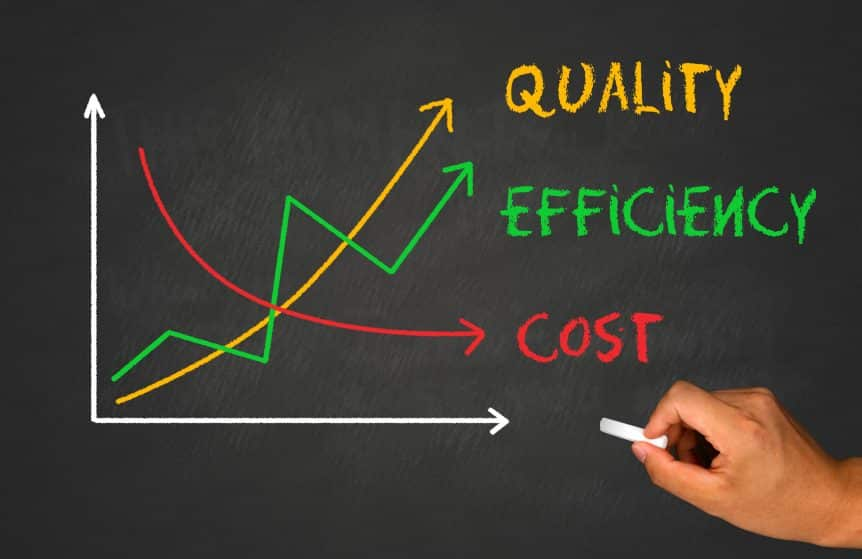
Sustainable energy is no longer merely a forward-looking concept. It is a driving force behind the modern economy. As global demand for clean, renewable energy rises, sustainable energy sources like solar, wind, and hydropower have become essential components of economic growth and resilience. Eric Hannelius, CEO of Pepper Pay, believes that “sustainable energy holds the power to transform economies by reducing costs, increasing energy security, and promoting job creation.” Here’s a closer look at how sustainable energy impacts today’s economy and why its importance will continue to grow.
- Boosting Economic Growth and Job Creation.
One of the most significant benefits of sustainable energy is its capacity to generate economic growth through job creation. According to the International Renewable Energy Agency (IRENA), the global renewable energy sector employs millions of workers, and that number is projected to continue increasing. This sector provides a wide range of job opportunities, from research and development to installation, maintenance, and operations, particularly in industries focused on solar, wind, and bioenergy.
For Eric Hannelius, this shift represents a promising economic trend. “Sustainable energy is creating jobs across various skill levels, which is essential for economic stability. The demand for green energy has created positions in research, technology, and infrastructure that didn’t exist a few decades ago. This growth offers job security and opportunities to a diverse workforce.”

- Reducing Energy Costs and Increasing Efficiency
Sustainable energy also has the potential to reduce energy costs in the long term. Although the initial investment for renewable energy infrastructure may be high, these sources typically have lower operational costs and do not rely on fluctuating fuel prices. This stability can help reduce energy costs for businesses and households alike, leading to greater disposable income and reinvestment opportunities within the economy.
In the fintech sector, Eric Hannelius points out, “When energy costs are stable, companies can plan their operational budgets more effectively. For industries that rely on high-power data centers and infrastructure, renewable energy is efficient and provide long-term cost savings.”
- Enhancing Energy Security and Reducing Reliance on Imports.
Sustainable energy strengthens energy security by decreasing dependence on imported fossil fuels, making economies less vulnerable to global energy price fluctuations and supply chain disruptions. As countries invest in their own renewable resources, they reduce the risks associated with relying on foreign energy sources, thereby increasing self-sufficiency.
This shift has a direct impact on businesses, especially those in sectors like finance and technology that require stable, reliable energy. Eric Hannelius notes: “Having a secure, domestically sourced energy supply benefits industries by ensuring continuity. With more companies adopting data-intensive operations, the security provided by sustainable energy is essential for smooth, uninterrupted service.”

- Supporting Environmental Goals and Corporate Responsibility.
Many businesses are under pressure to adopt sustainable practices to meet environmental targets and consumer expectations. As carbon reduction becomes a priority for companies, adopting sustainable energy allows them to reduce emissions and contribute to a cleaner planet. This trend is particularly evident in industries like fintech, where digital infrastructure and data centers have significant energy demands. By investing in green energy, companies are able to align their operations with environmental goals, fulfilling both regulatory requirements and public demand for sustainable practices.
Eric Hannelius reflects on this impact in the fintech sector: “Investing in renewable energy allows fintech companies to operate more responsibly, contributing to environmental protection and meeting the expectations of socially conscious consumers.”
- Stimulating Innovation and Technological Development.
The rise of sustainable energy is driving a new wave of technological innovation. From advancements in battery storage to the development of smart grids, sustainable energy requires new technologies to improve efficiency, reliability, and scalability. These innovations support the energy sector and spill over into other industries, fostering a broader ecosystem of technological progress.
“Sustainable energy encourages continuous innovation,” says Eric Hannelius. “As companies find new ways to harness, store, and distribute clean energy, it opens doors for technological progress across sectors. In fintech, we benefit from the ripple effects, such as improvements in energy-efficient data centers and sustainable operations.”
- Sustainable Energy as an Economic Catalyst.
Sustainable energy is reshaping the modern economy by creating jobs, reducing costs, enhancing security, and supporting environmental goals. By embracing renewable resources, businesses and economies are building a future that is sustainable, resilient and innovative. Eric Hannelius sums it up: “Sustainable energy is more than an industry. It is a catalyst for economic transformation. It offers a way forward that benefits businesses, individuals, and the planet alike. For fintech and other sectors, the shift toward sustainable energy means we are collectively working toward a more responsible, forward-thinking economy.”

As the global shift toward sustainability accelerates, sustainable energy will continue to be a fundamental force in driving economic growth and setting new standards for corporate responsibility in the years ahead.
